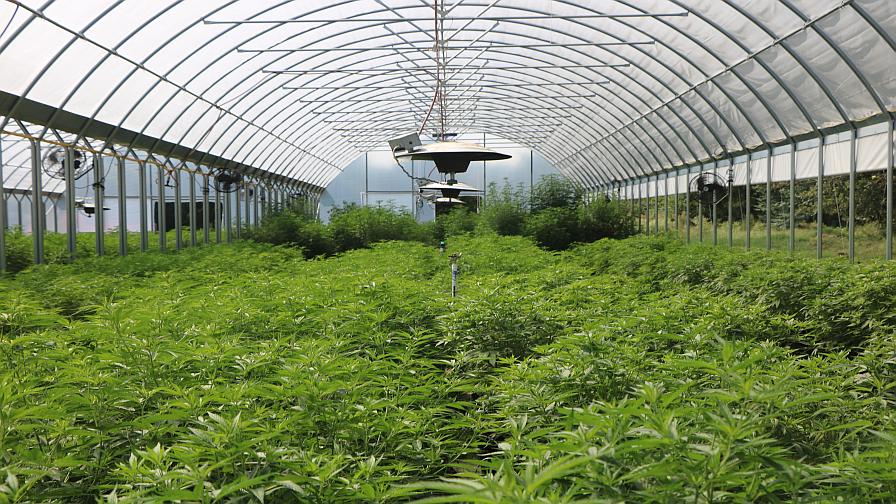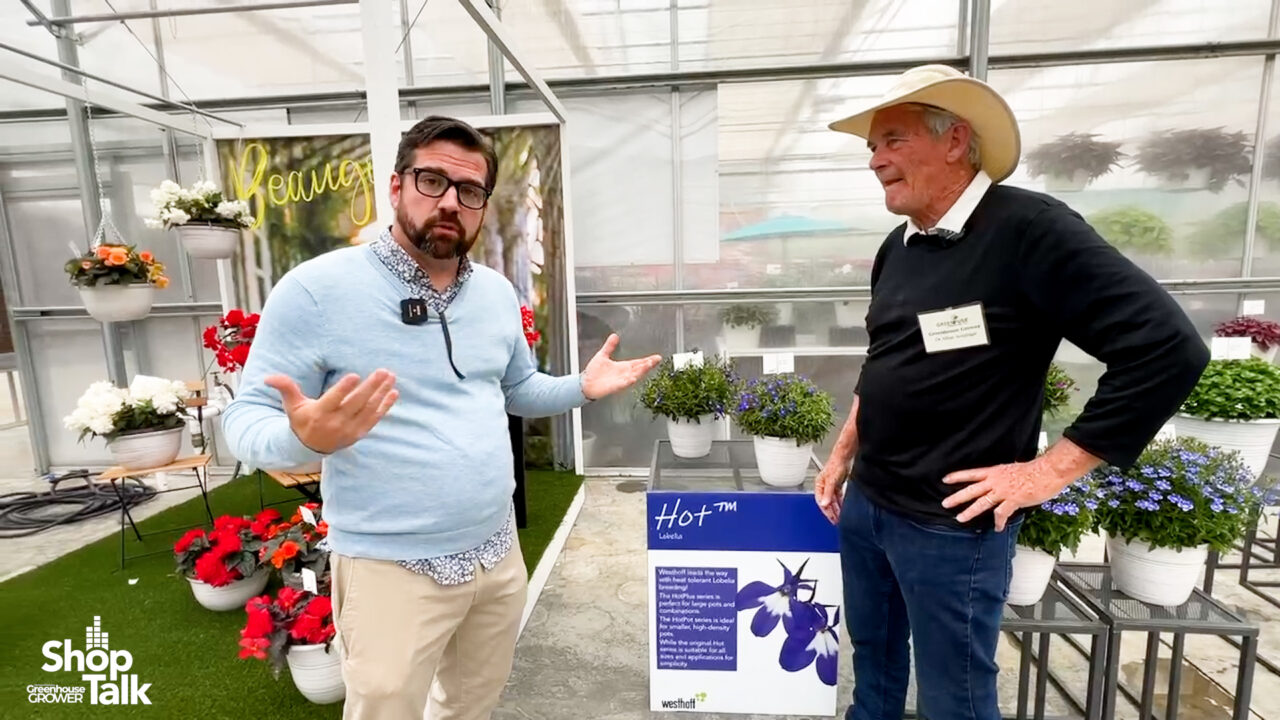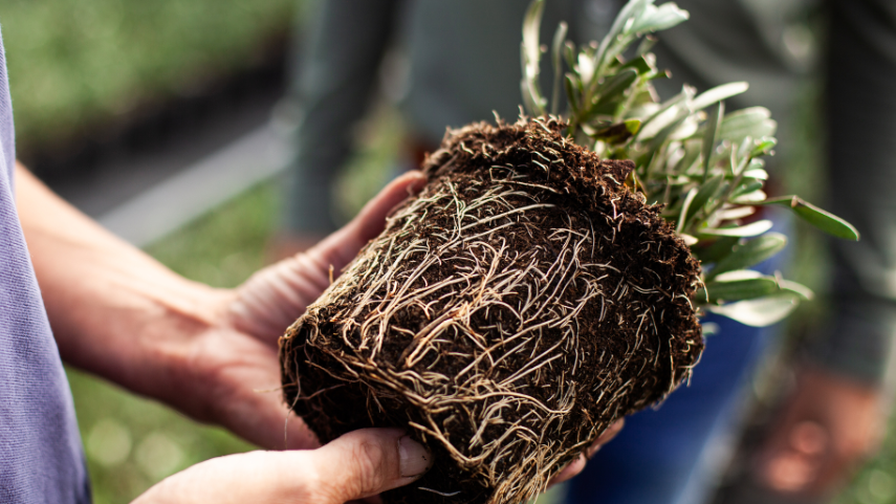National Initiative for Consumer Horticulture Releases New Marketing Infographics
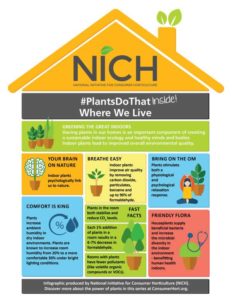 Indoor plants — including those where we live, learn, heal, and work — have far-reaching positive effects on peoples’ well-being and indoor environment, according to a new report from the National Initiative for Consumer Horticulture (NICH).
Indoor plants — including those where we live, learn, heal, and work — have far-reaching positive effects on peoples’ well-being and indoor environment, according to a new report from the National Initiative for Consumer Horticulture (NICH).
A new series of four #PlantsDoThat Inside infographics focuses on the multitude of ways indoor plants affect where we live, where we work, where we heal, and where we learn.
“Greening the great indoors is a way to help create sustainable indoor ecology and healthy minds and bodies,” says Dr. Charles Hall, Ellison Chair at Texas A&M University.
The infographic series was developed from a scientific literature review evidence base developed by Dr. Hall and his students. The series of four brightly colored infographics, designed by Jennifer Gray of AmericanHort and the Horticultural Research Institute, is free. The infographics can be downloaded from NICH’s website, with one new image introduced each week.
“We envision this series of infographics to be used as tools to promote the power of indoor plants,” says Debbie Hamrick, NICH Economic Committee chair. “We want to raise awareness of the positive benefits of plants in our everyday lives.”
Growers, retailers, teachers, Extension agents, and interiorscapers can use the infographics for promotional and educational materials and upload to social media.
The #PlantsDoThat Inside infographic on Where We Live shows:
• Rooms with plants have fewer pollutants like VOCs (volatile organic compounds).
• Plants in homes increase room humidity by 10%.
• Plants remove up to 90% of formaldehyde in a room.
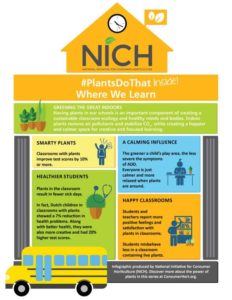 The #PlantsDoThat Inside on Where We Learn illustrates that classrooms with plants have many positive effects, including:
The #PlantsDoThat Inside on Where We Learn illustrates that classrooms with plants have many positive effects, including:
• Test scores increase by 10%.
• Children are 7% healthier
• Symptoms of ADD are reduced.
“When plants are around, students are just smarter and pay more attention,” Hall says.
The benefits of consumer horticulture were spotlighted in the first NICH infographic titled “#PlantsDoThat, Horticulture: The Art, Science, & Business of Plants.” The infographic illustrated how consumer horticulture contributes $196 billion to the U.S. economy and creates more than 2 million jobs.
For more information, contact Susan McCoy ([email protected]) at the Garden Media Group.





